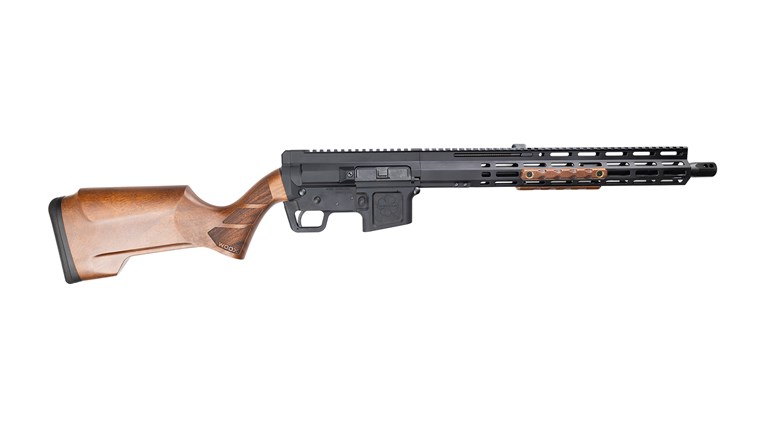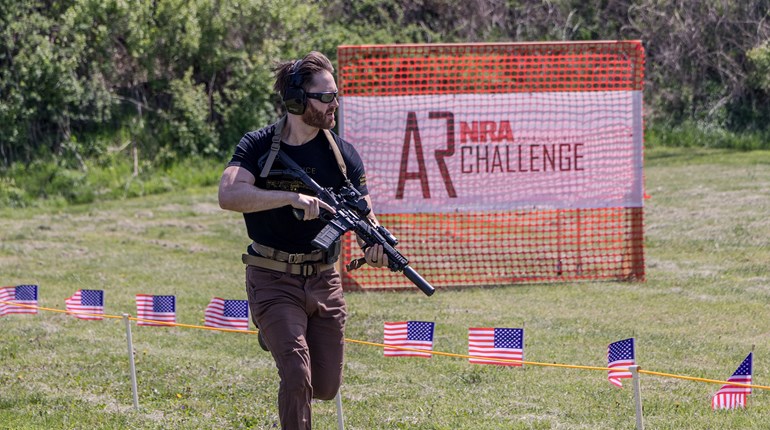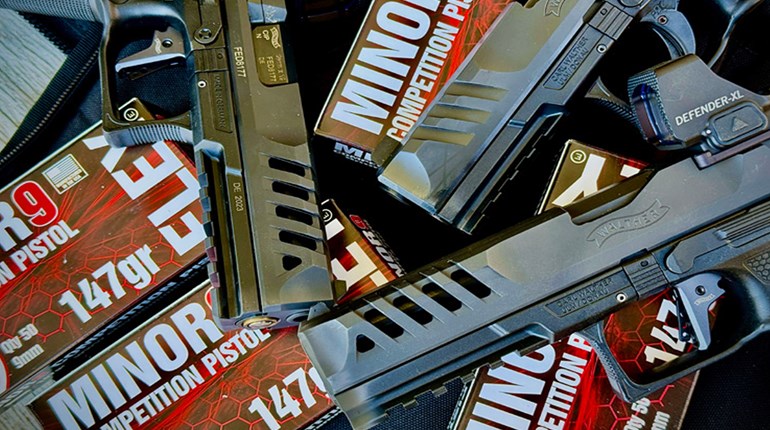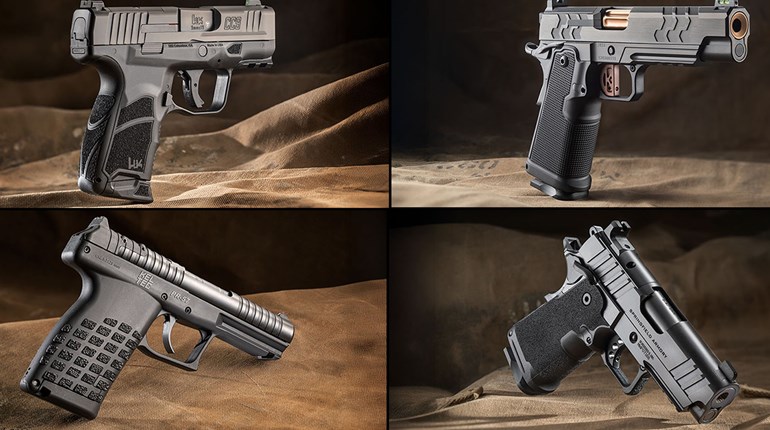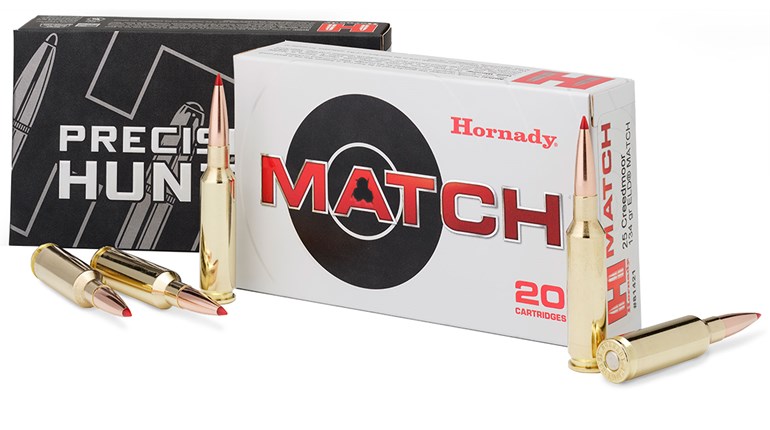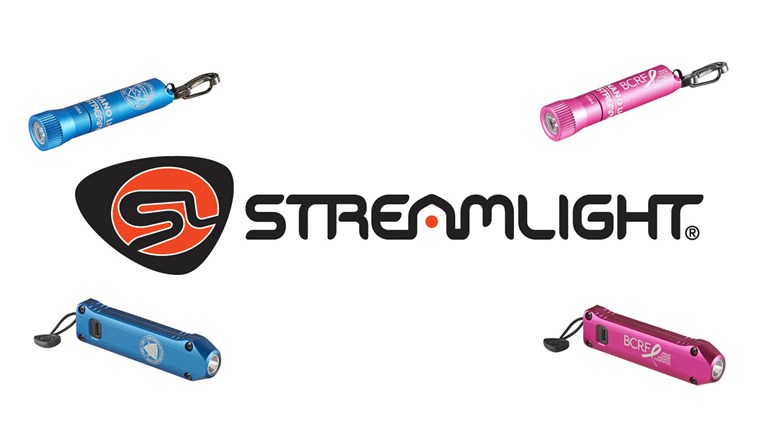
Like many current and former "ground-pounders," my view of the AK family of firearms used to be stereotypical: They go bang when you pull the trigger and throw rounds in the general direction you point them. I used a bunch of AK variants during my Army career, but I never gave Mikhail Kalashnikov's simple masterpiece much thought beyond its "minute-of-man" accuracy, uncomfortable folding stock and ample muzzle flash. Taking the time to actually zero them can make AKs aim-worthy, but they are still not known for precision. I always assumed the 7.62x39 mm cartridge they fire was likewise incapable of doing much more than moving through the air and hurting whatever it occasionally hit. It turns out that I was very, very wrong.
Fast forward a few years to the point where I finally grew tired of lugging my .308 Win.-chambered AR around the woods every fall. Don't get me wrong, I still love me some .308 Win., but ever since hanging up my fightin' boots, the willpower required to punish myself with more weight and bulk than necessary has evaporated. I resolved to build a carbine on the smaller AR-15-size platform, but chambered for a cartridge suitable for whitetail, hogs, coyote and home defense.
The .300 AAC Blackout and .30 Rem. AR had yet to make their commercial debuts at the time, so that left me with 6.5 Grendel, 6.8 Rem. SPC, .300 Whisper and 7.62x39 mm as candidates. I liked the .300 Whisper in both subsonic and supersonic loads, but I wanted a cartridge with more factory-ammo options. Previous experience with 6.8 Rem. SPC accuracy woes ruled it out for the time being. Components for 6.5 Grendel were both expensive and/or nonexistent at the time. It seems I was destined to dance with the 7.62x39 mm, and I figured if it would at least shoot as well or better than a .30-30 Win. at 100 yards, the end result would be a suitable woodlands deer gun. Imagine my surprise when right out of the gate the first one I built shot consistently well—inside of 1 MOA at 100 yards—with multiple factory loads no less.
Building what has become my primary general-purpose rifle was not without some hiccups. I just dove in, doing zero research ahead of time. I picked what I thought looked like the best components from a very limited field of choices with no idea what to expect. I quickly learned firing pins need a slightly longer protrusion through the bolt face and/or a wider tip in order to reliably ignite most of the Eastern European primers. A simple Web search would have provided that information ahead of time, but that would have been too easy. I also discovered most 7.62x39 mm AR-barrel makers do not have a good grasp of gas ports. It took a little trial and error for me to find the right port sizes and buffer/buffer-spring combinations for mid- and carbine-length gas systems. Once I worked through these challenges, my carbine became a reliable shooter that has spawned a bunch of offspring for other happy shooters.
The 7.62x39 mm AR configuration uses the same bolt carrier as 5.56 variants, but a different bolt, firing pin, extractor and magazine are required for the larger cartridge dimensions. I used to consider this a negative when compared with chamberings that use the same bolt-carrier group and mags, but after seeing someone destroy an AR by feeding it the wrong cartridge from a mixed-ammunition magazine, the different bolt and magazine may not be such a bad thing after all.
Ammunition cost and availability are huge advantages in this chambering. Even when most other cartridges are scarce and prices are inflated, 7.62x39 mm remains fairly easy to find and prices tend to hold steady, thanks in large part to supplies coming from Europe. Several factory loads are available from both Ameri-can and foreign factories that bring accuracy and downrange performance to the party in one package. My favorite factory fodder is Federal's 123-grain soft point, which also happens to be a very good expander in tissue. Hornady's 123-grain SST and 123-grain Zombie Max loads also shoot nice groups and provide devastating expansion in critters. Accurate ammo from across the pond suitable for both hunting and defensive use includes both Tula and Wolf 123-grain hollowpoints.
John "Shrek" McPhee, of SOB Tactical, uses the Tula HP ammo exclusively to cull large game and deal with a wide variety of predators. I, myself, took a buck with it last fall.
A whole host of factory loads are available from other manufacturers, too, mostly in FMJ, soft-point and hollow-point designs. Both brass and steel-cased loads work well in these rifles. As with any caliber, be sure when you shoot heavily lacquered steel cases, you pay special attention to keeping your chamber clean during maintenance to avoid any long-term buildup or stickiness.

So what's not to like about a 7.62x39 mm AR? Availability of factory-built rifles, for one thing. At press time, I was only able to find options from four companies: Rock River Arms, Olympic Arms, MGI and Del-Ton (upper only). At one time, Bushmaster, DPMS and Armalite also offered 7.62x39 mm ARs, but I do not see them on current product lists. Not finding an off-the-shelf solution leaves the prospective AR buyer with the option of finding a custom builder or making a project gun or upper. This leads to the next problem: availability of components.
Finding good barrels is often a challenge. I have come close to buying .310 blanks and making my own tubes more than once. Armalite's chrome-lined barrels are the most consistently accurate I have used, but none have come out of the Geneseo, IL-based company in the past two years. AR-Stoner makes 16- and 20-inch stainless steel barrels in this caliber, and the two I have used shot very well. Off-the-shelf firing pins can be had by themselves from Model 1 Sales or from MGI in conjunction with their 7.62x39 mm bolt assemblies. Several other companies have made bolt assemblies, but to the best of my knowledge, only MGI is currently producing them for the parts market.
Magazines have been the real Achilles' heel of this AR configuration. For several years, there simply were not any good options. Today, C-Products, AR-Stoner and Pro-Mag each produce mags in various capacities. I have found the five- and 10-round mags to be relatively problem-free, but the 30-rounders (best loaded to only 25 rounds) are a different story. I have settled on Pro-Mag as my brand, though C-Products is a close second. Pro-Mag's 30-rounders ride highest in the AR's lower receiver, which is critical to reliable functioning. I think if someone could figure out a way to produce a polymer 7.62x39 mm mag that fits tightly in the standard AR lower, the rifle and cartridge would blossom. A reliable 20-round magazine would also be well received by shooters.
Rock River Arms and MGI have tackled the magazine problem in an entirely different manner, designing their ARs to accept standard AK magazines. I reviewed the MGI Marck-15 Hydra in 2012 for Shooting Illustrated. While testing that system, I found a wide variety of AK mags fed perfectly. The MGI design proved reliable and has the additional advantage being modular, so changing chamberings is relatively easy with the purchase of additional barrels, bolts, magazines and modular mag wells. Steel AK magazines are generally easy to find, and aftermarket polymer configurations shave a bunch of weight. The downside to this setup is the AR's bolt cannot be locked to the rear and the mag bodies are too bulky to fit in human-size ammo pouches. Regardless of whether a 7.62x39 mm AR uses AK or AR-pattern magazines, the very long 30-round models are difficult to rest on the ground when prone and require a tall bipod when shooting for precision.

Performance-wise, how does 7.62x39 mm stack up against other mid-size AR cartridges? I see factory ammo velocities between 2,250 and 2,400 fps in 16-inch barrels, depending on the brand and bullet weight. I can get my handloads up to the 2,450 fps range, but my pet hunting/accuracy load runs closer to 2,300 fps. While the 7.62x39 mm has a ballistic coefficient and sectional densities inferior to other .30-caliber AR options, it also has distinct advantages. 7.62x39 mm commercial-load accuracy ranges from good to excellent, while low recoil, plentiful supplies and inexpensive per-round costs make it an attractive choice. As a side note, there are several other non-AR/AK/SKS 7.62x39 mm options on the new and used markets. Ruger's Mini-Thirty is still available in several configurations and finishes. CZ-USA offers its Model 527 bolt-action carbine in the little Russian round and if you look, you will find other bolt-action options as well as surplus guns that look like AKs, but have different internal designs and magazines.
Up to this point, I have only built 7.62x39 mm ARs with 16-inch barrels. Performance with chrome-moly/chrome-lined and stainless steel barrels in both light and medium contours has been good enough to convince me that carbines are fine for shooting out to 300 yards. The 7.62x39 mm is a good solution for moving up from .224-caliber projectiles without simultaneously increasing the AR's size and while keeping your budget in check.
Looking back to my soldiering days, I'm glad I was unaware of this cartridge's accuracy potential while I was on its receiving end. I distinctly remember thinking that the odds of being hit from beyond 100 meters were pretty slim. It's a good thing the bad guys were using inaccurate guns (often with the buttstocks removed) and placed little emphasis on aiming. Otherwise, I might have had a healthier respect for—and fear of—this round.












